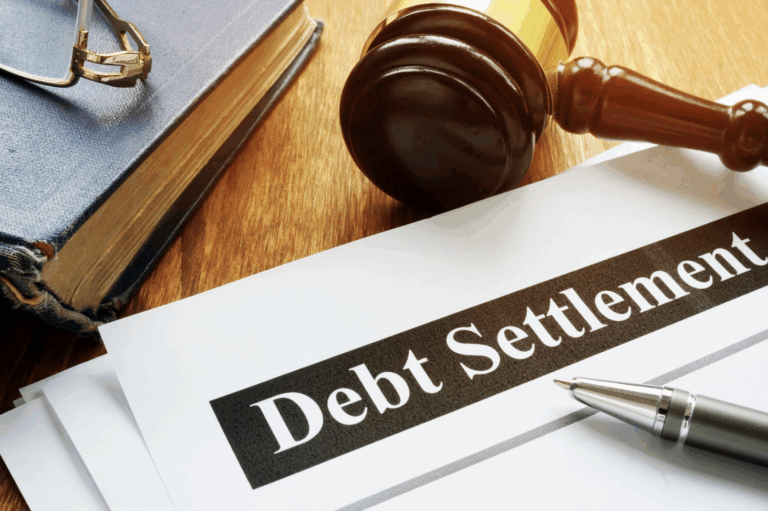Paying off a loan or credit card balance is a big accomplishment. But you might not feel like celebrating if you check your credit score, only to find that it’s dropped after knocking out that debt. After all, your creditors want to be paid back, so why would you be penalized?
Before you get too discouraged, learn the reasons why your credit score might drop after paying off debt and what to do.
Why Did My Credit Score Drop After Paying Off Debt?
There are several factors that impact how your credit score is calculated. The biggest one is payment history, which affects 35% of your score. The next most heavily weighted factor is amounts owed, which accounts for 30%. Other credit score factors include length of credit history (15%), credit mix (10%) and new credit (10%).
So what does this have to do with paying off debt? There are a few reasons why getting rid of a debt could cause your score to decrease.
Your credit utilization rate increased
The amount of debt you owe in relation to the total amount of credit you have available is also called your credit utilization rate or ratio, which is expressed as a percentage. Here’s the formula:
Total Balance / Total Available Credit * 100 = Credit Utilization
For example, say you have a credit card with a $1,000 limit and a balance of $200. In this case, your credit utilization ratio would be 20%.
When it comes to the effect on your score, revolving credit accounts (such as credit cards or other lines of credit) is much more impactful than installment loans (student loans, personal loans, mortgage, etc.). And the lower your credit utilization, the better. Additionally, credit utilization considers the balance you carry on individual cards and your total debt compared to your total available credit.
So let’s say you paid off the credit card in the above example and closed it. In this case, your credit utilization would be zero since the account no longer exists. Unless you have other cards with balances, that is. Say you have two cards instead:
- Credit Card A: $1,000 credit limit, $200 balance
- Credit Card B: $5,000 credit limit, $3,000 balance
By paying off and closing Credit Card A, you would get rid of that $1,000 available credit, and your total credit utilization would actually increase from about 53% to 60%.
There’s an easy way around this, though. When you pay off a credit card, simply keep the account open. That way, you’ll keep the total amount of credit available to you, but you’ll be using less of it. If you’re worried about running up a balance again, you can shred the physical card and delete any saved information.
The average age of your accounts decreased
There are a few components to your credit history, including the age of individual accounts and the average age of all your accounts. If you have a long credit history, paying off a debt probably won’t have much negative impact in this area. But it can if you have a “thin credit file,” meaning you don’t have much experience using credit. After paying off a loan, it gets marked as “closed.” If it was one of your older loans, your average account age would be shortened.
Your credit mix is less diverse
Lenders like to see that you have experience managing different types of credit. So if paying off a debt makes your credit mix less diverse, your score could get dinged. For example, if you only had one credit card and one student loan, paying off that loan would mean you only have revolving debt left.
That doesn’t mean you should borrow many loans just for the sake of your credit. At 10% of your score, the impact would likely be minimal.
Does Paying Off a Loan Early Hurt Credit?
If you’re trying to build good credit, you might not want to pay off an installment loan early. Once a loan is repaid, it is marked as “closed” on your credit report. Open, active accounts that are in good standing, on the other hand, have a stronger positive effect on your credit. So in some cases, it can be worth keeping a loan active and sticking to your repayment schedule vs. paying it off ahead of time. That is, as long as you can afford the payments, have plenty of emergency savings and the loan’s interest rate is fairly low.
Keep in mind that there may be other costs to paying off a loan early, too. Some lenders charge prepayment penalties, which are fees for paying part or all of your loan off before the repayment term is up. So before you pay off a loan early, be sure to review your original contract or ask your lender whether you’ll be charged a penalty. If so, you’ll need to crunch the numbers and see if paying the penalty is worth it compared to the interest savings.
If you have credit card debt, however, it’s a good idea to keep your balance as close to $0 as possible. There’s no benefit to carrying a balance month-to-month — you’ll simply rack up interest and maintain a higher credit utilization ratio.
How Does Paying Off a Loan Help Credit?
Even though paying off a loan or credit card can cause your credit score to decrease, the good news is that the drop should be minimal and temporary. Ultimately, paying off a debt is great for your credit score for a few reasons.
For one, making on-time payments toward your debt helps boost your payment history. Remember, this is the most heavily weighted factor in your credit score calculation. So building a track record of making payments on time is the best thing you can do to build good credit.
Once you’ve paid off a debt, the account and its positive payment history also stay on your credit report for 10 years. That’s even longer than negative items, such as a late payment or account in collections, which stick around for seven years.
Finally, paying off debt reduces the total amount of debt you owe. This can significantly improve your credit, especially if you pay off revolving debt such as a credit card. Just remember: keep the account open, even if you don’t plan to use it.
The Bottom Line
Managing debt is important for your financial well-being. If you ever feel overwhelmed by your debt, it might be a good idea to consult a professional. You can call the Tayne Law Group at (866) 890-7337 or fill out our short contact form to get a consultation and find out if you might benefit from our services.





